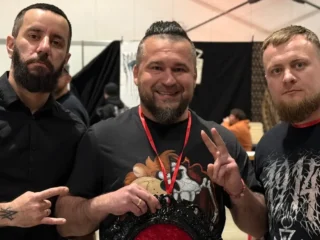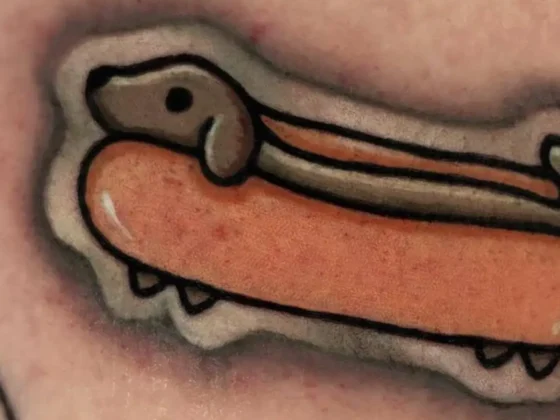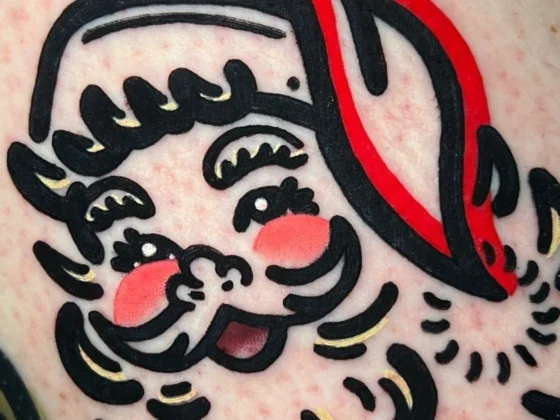Devon Preston
October 1st, 2019
The Biggest Losers Host Bob Harper On Heart and Health
Being vulnerable online not only gave Harper support in his time of need, but it opened his eyes to an entirely new community of people that he could help with his story.
Close your eyes. Now imagine the type of lifestyle which makes an individual susceptible to a heart attack. Open your eyes. Standing before you is Bob Harper, who at 54-years-old has trained overweight Americans on The Biggest Loser for the past 15 years, was once an avid CrossFit athlete and overall, has maintained a near perfect physical physique throughout his lifetime. But, on February 12th of 2017, Harper’s life was thrown off balance when he suffered a widowmaker heart attack, which according to the Institute of Medicine has a survival rate of less than 10 percent.
“The last thing that I can remember was February 11th,” shares Harper, who’d spent the evening at a West Village restaurant with friends. “It was an early night, I left them, went home and the next thing that I remember, I was in a hospital two days later being told that I’d not only had a heart attack but went into cardiac arrest.”

From what Harper had been told by friends afterwaking up in the hospital, he complained about being dizzy and not himself during the morning of the attack. Then, partway through his workout, he laid down and rolled onto his side. Luckily for Harper, there was a doctor in the building who went into full attack mode after seeing Harper blue on the ground. While performing CPR, the doctor struggled to get the defibrillator to go off, as Harper had already flatlined. “I’ve been told that could have been it for some people, but he was so persistent and kept performing CPR until he got some sort of current going through my heart,” explains Harper. “By that time, paramedics came and gave me their full on jolt.”
For someone like Harper, who has dedicated his life to being in charge of other people’s health, it’s difficult to relive this moment. “Losing control was really hard because health and fitness defined me. That’s who I was, I was that guy. And then, all of a sudden, I was in a hospital for a week.” After leaving the hospital Harper struggled to get back into his old routine and despite wanting to jump back into CrossFit, there was no going back to his high intensity lifestyle. “I could only walk around my block and that was it,” shares Harper. “When I would come back inside, I was exhausted from that and I had to really start looking inward. It was really difficult and I went through a lot of depression because of it.”
But from that dark place, Harper came to realize that there was a lesson to be learned from nearly losing his life. “I’ve always been a very extreme person and people say that a traumatic event in your life can be a blessing in disguise,” Harper says. “I really hate that but it did teach me something and what it taught me was balance.” Today, two-and-a-half years later, Harper’s life has done a complete 180, from his workouts to his diet. Prior to his heart attack, “If I didn’t get to the gym, then there was hell to pay,” but after, he needed to find a new way to release his anxiety. “I still am very intense, but I’ve found a way to balance it more. It’s so much easier because I don’t have to be so regimented and rigid.”
Harper has since traded CrossFit for Bikram yoga, which gives him the strictness he craves without taking a toll on his heart. “These classes are very structured and rigid, they’re 26 poses and two breathing exercises every single time,” explains Harper. “If you do the same thing every single day, it can become monotonous, it can become tedious, and it brings up a lot of shit. It’s so intense in that way but it’s such a great way of meditating.”
Prior to his heart attack, Harper was the kind of person who pushed through a tough workout, no matter what. And as a trainer on The Biggest Loser, you saw this philosophy play out throughout 16 seasons and hundreds of contestants pushed to their limits. However, post-attack meditation has caused Harper to have a drastic change of heart. “Lately, I’ve changed something and that is where if I don’t want to do something or if I’m just not feeling it, I just sit. I’ll sit there and I’ll breathe in,” Harper says. “That relinquishing of control has made me feel so much better and to know that I don’t need to do everything. For the longest time, I thought that I had to do it all and I had to push with something that has to be this strict and this hard. But it’s not that way anymore and that feels a lot better.”
Harper’s workouts aren’t the only way he’s learned to relinquish control. During his recovery process, Harper relied on a support team, including his fiancee. However, he also leaned on his fans and gave in to sharing his story openly online. “One thing that I decided to do was to be completely transparent during my recovery. I went on social media and I really showed my vulnerability, that’s something that I never really did before,” says Harper. “Once I was able to get everything out, that started making me feel better and I didn’t have to be anybody to anyone other than who I was on any given day. I had to own all of it, in any way, shape or form. And looking back in hindsight, that really helped me.”

Being vulnerable online not only gave Harper support in his time of need, but it opened his eyes to an entirely new community of people that he could help with his story. “I’m able to go around the country now and speak to other heart attack survivors,” explains Harper. “I get them to talk to me about their stories and those stories help people who’ve just had heart attacks. Because I know they’re scared, I woke up in that hospital room. I know what it feels like to be sitting there and have my heart give out on me.” Harper has spent his entire life helping others with their health, but from the perspective of a professional trainer. Now, he’s able to put himself in the shoes of every single heart attack survivor and truly understand their lowest lows. “It’s the most humbling experience in the entire world,” says Harper. “It’s like going from feeling like Superman, where I’d leave a class and say ‘I’m 50-whatever and look what I’m able to do.’ It was a badge of honor and then, all of a sudden, it was all stripped away from me.”
From being stripped of his power to speaking with survivors around the country, Harper has gained a new understanding of who is susceptible to experiencing a heart attack. “When I was a kid, heart attacks were always perceived as a man’s type of disease. A man’s going to have a heart attack and a woman’s going to have breast cancer. And now you realize that’s obviously not the case,” says Harper. “Then it became a thing that a certain demographic was more susceptible to heart attacks. Are you overweight? Do you smoke? Do you not take care of yourself?” In coming forward and being transparent about his health, Harper has shed light on the reality of heart health. Family history plays a huge role in determining someone’s likelihood of having a heart attack and after losing his mother as well as his grandfather to this same fate, he turned away from the truth for years, until it was almost too late. But now, after being given a second chance, Harper encourages everyone to look into their family history and to speak with their doctors about changes they can make today.
While it’s important to look ahead and be prepared for whatever comes our way, Harper knows now to live in the moment and make the most of every day. “We don’t know what’s going to happen and we don’t know what the future has in store for us,” says Harper. “So the more I could stop looking at the future and focus on the here and now, that’s been a big thing. I’ve got to meditate on that and I have to really focus on today.”
Editor's Picks
Chris Brown’s Face Tattoo Shows His Heart and Sole
Chris Brown has a brand new tattoo! Long gone are the days of the baby faced teen, Brown is all grown up and has the tattoo collection to prove it!…
Oh Me, Oh My
Chrissy Chlapecka on finding her voice, spreading self-love on TikTok and releasing her first single













